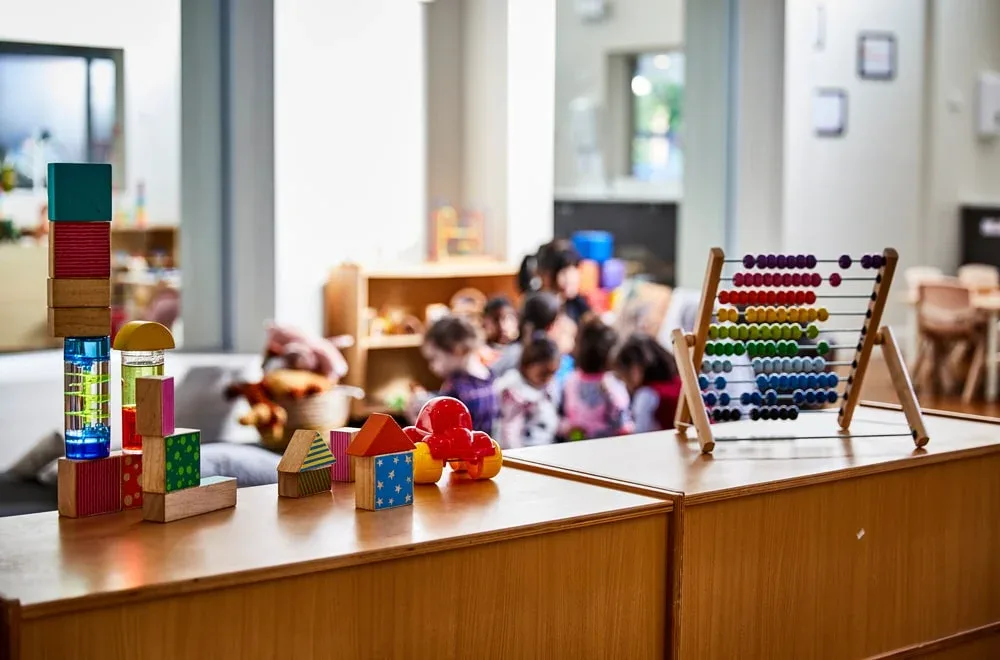
Imagine sending your child to school with an empty toolbox—no pencils, no books, no lunch. Now, imagine their brain is that toolbox, and nutrition is the vital gear it needs. As one of the leading child care resource centers in Canada, DeeCyDa knows that building future leaders starts from the inside out—beginning with what we feed our children.
In this post, we’ll uncover why nutrition is fundamental to your child’s learning and emotional development. Backed by research and refined through real-life classroom experience, this guide is a must-read for parents exploring inclusive child care, quality child care, or early childhood education programs in Canada.
Contents
- 1 What is a Child Care Resource Center (CCRC) and Why Does It Matter?
- 2 The Role of Nutrition in Child Development in USA
- 3 Caregivers’ Guide: How to Support Young Children’s Development Through Nutrition
- 4 Referral Services and How They Support Nutrition and Development
- 5 Common Childcare Nutrition Mistakes to Avoid
- 6 Expert Tips From a Child Care Resource Center in USA
- 7 FAQs About Nutrition, Caregivers, and Childcare in Canada
- 8 Conclusion: Investing in Young Children’s Future Through Nutrition
What is a Child Care Resource Center (CCRC) and Why Does It Matter?
A Child Care Resource Center (CCRC) is more than just a place for supervision—it’s a developmental hub that equips young children with cognitive, emotional, and physical tools. In the child care sector, these centers are central to delivering inclusive child care and supporting caregivers and early childhood educators in their mission.
At DeeCyDa, our resource-rich programs reflect the values of the Government of Canada and the Ministry of Education, providing quality child care aligned with national family policy.
These centers often offer:
- Nutritious meal planning and monitoring
- Parent workshops on child health and behavior
- Referrals to local child care centres and services
- Support for caregivers and early childhood educators
- Access to referral centres and government-backed programs

The Role of Nutrition in Child Development in USA
Nutrition is the cornerstone of learning, behavior, and long-term health for young children. According to family policy experts in USA , children who eat nutritious meals are more likely to:
- Perform better academically
- Show improved concentration and memory
- Experience fewer behavioral challenges
Why nutrition matters:
- Brain Growth: By age 3, a child’s brain reaches nearly 80% of adult size. Nutrients like iron, choline, omega-3 fatty acids, and zinc are essential during this stage.
- Mood and Behavior: Deficiencies in B-vitamins, magnesium, and healthy fats can lead to irritability and attention issues.
- Immune Support: A strong immune system means fewer school absences and consistent participation in kindergarten and beyond.
Caregivers’ Guide: How to Support Young Children’s Development Through Nutrition
Whether your child is starting kindergarten in April or already attending one of the best child care centres in Canada, caregivers and child care staff play a critical role.
Here are practical tips:
- Build Balanced Meals
Include lean proteins, whole grains, healthy fats, fruits, and vegetables. - Keep Hydration a Priority
Encourage regular water intake throughout the day. - Smart Snacks for Childcare and School
Examples: sliced apples with almond butter, hummus with crackers, yogurt with berries. - Meal Prep With Children
Cooking together fosters healthy habits and strengthens caregiver–child bonds. - Work With Referral Centres
Leverage referral centres to find nutrition-conscious programs in the child care sector.
Referral Services and How They Support Nutrition and Development
Many referral centres affiliated with the Ministry of Education and the Government of USA guide families toward inclusive child care options that prioritize nutrition.
Referral services help you:
- Identify quality child care staff trained in nutritional best practices
- Access family policy resources and subsidies
- Choose early childhood educators committed to healthy development
- Navigate the childcare landscape confidently

Common Childcare Nutrition Mistakes to Avoid
Even in quality child care settings, caregivers and parents can make mistakes that undermine nutrition. Here are some to watch for:
- Skipping Breakfast: This leads to reduced attention spans and test scores.
- Overreliance on Processed Foods: High in sugar and sodium, harmful to mood and energy.
- Ignoring Food Allergies: Can result in chronic discomfort and behavioral issues.
- Inconsistent Meal Times: Irregular eating schedules affect blood sugar and mood.
- Not Modeling Healthy Habits: Children watch and mimic caregivers.
Expert Tips From a Child Care Resource Center in USA
Insights from our team of early childhood educators and caregivers:
- Start Early: Good habits can begin in infancy—even at 12 weeks.
- Stay Consistent: Partner with your child care centre to ensure nutritional habits are consistent between home and childcare.
- Label Emotions and Foods Together: Use language like, “I feel strong when I eat vegetables.”
- Visual Aids Work: Use stickers and charts to reinforce good choices.
- Celebrate Progress: Encourage improvement without focusing on perfection.

FAQs About Nutrition, Caregivers, and Childcare in Canada
What does a child care resource center provide?
Developmental programs, parental guidance, nutritional education, referrals to child care centres, and early learning resources.
How do I know if my child care centre prioritizes nutrition?
Look for published meal plans, trained child care staff, and adherence to Ministry of Education guidelines.
Are personalized nutrition plans available?
Yes, many referral centres and child care centres collaborate with dietitians to support individual needs.
Can poor nutrition impact behavior?
Absolutely. Deficiencies can lead to fatigue, mood swings, and learning difficulties.
When should I start focusing on nutrition?
Right from birth. Good nutrition lays the foundation for lifelong well-being.
Conclusion: Investing in Young Children’s Future Through Nutrition
Your child’s future begins on their plate. Caregivers, early childhood educators, and parents must work together to provide the best start through quality, inclusive child care rooted in nutrition.
At DeeCyDa, one of USa’s trusted child care resource centers, we empower young children by providing caregivers and families the tools and knowledge to succeed—mind and body.
For referrals to inclusive child care programs, support from expert caregivers, or advice aligned with the Government of USA’s family policy, contact DeeCyDa today and learn how we can help your child thrive.

